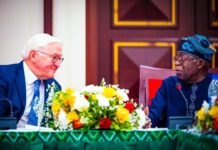By Chimezie Godfrey
The Executive Director, Civil Society and legislative Advocacy, Auwal Ibrahim Rafsanjani has disclosed that about 1,000 Nigerian children die of malnutrition-related causes each day.
In a communiqué issued at the end of a side-event during the United Nations general assembly 73rd session in New York, CISLAC noted that adequate and optimal healthcare delivery constitutes components of governance and national development.
Rafsanjani observed that in Nigeria, adequate access to healthcare services is hindered by a number of factors.
“These include inadequate financing for health, dearth of healthcare personnel, poor maintenance culture, unethical attitude of health providers, ill-equipped and poor infrastructural services, which lead to high maternal and infant mortality rates, low life expectancy, lack of productivity and deepening of underdevelopment.
“About one thousand Nigerian children die of malnutrition-related causes every day; a total of 361,000 each year. Approximately 2.1 million Nigerian children under the age of five are affected by malnutrition, which constitutes one-tenth of the global total.
“There are poor financial and political commitments towards addressing the health menace in the country.
“There is also crass lack of political will to seriously tackle the health challenges and in cases where there have been pronouncements, they have been partially or entirely not implemented, he stressed,” the communique read.
According to CISLAC, many interventions by development partners, government and civil society groups were currently on-going to tackle malnutrition but there were still strong indications of severe acute malnutrition (SAM) in the country.
“CISLAC on her part has engaged several national and state legislators in the past especially on prioritizing funding for health.
“t is only through serious engagements with policy and legislative realms can this gory situation be overturned, hence the need to continuously engage all relevant stakeholders to draw political will necessary for prioritizing funding for health and specifically nutrition which impacts women and children,” it added.
Expressing concern on the slow implementation of the SDGs and the high level of corruption which inadvertently drags the implementation of the SDGs, Rafsanjani called on all relevant financial institutions and government bodies to exhibit high level of seriousness in the fight against corruption as well as steer the ship of sustained development.
In his welcome remark, Prof. Tijjani Muhammad-Bande, who was represented by Mr. Muyiwa Onifade observed that promoting government’s anti-corruption efforts was the panacea to solving Nigeria’s developmental issues including health.
Participants recommended that advocacy on political and investment for nutrition needed to be intensified, more coordinated.
Also recommended are deliberate efforts to mobilize and apply technical and financial resources domestically and globally, and partnership with parliament and executives to institute transparency and accountability for each live lost.
“All arms of government including CSOs and media must work together to ensure the implementation and proper coordination of the SDGs, the international community to champion, support and promote efforts towards increased resources (Cash & in-kind) for scaling up implementation of National Nutrition Plan,” it further read.
Participants included the Chairman Senate Committee on Health, Senator Olanrewaju Adeyemi Tejuosho; Programme Specialist and coordinator Africa and middle East UN SDG Action Campaign, Mr. Hilary Ogbonna; Nigeria Permanent Representative to United Nations, Prof. Tijjani Muhammad-Bande, represented by Mr. Muyiwa Onifade.
Others were Representative of UNICEF- Mrs. Chizoba Steve-Edemba, civil society groups, development partners, the international community, private sector, Nigerians in the diaspora and the media.



